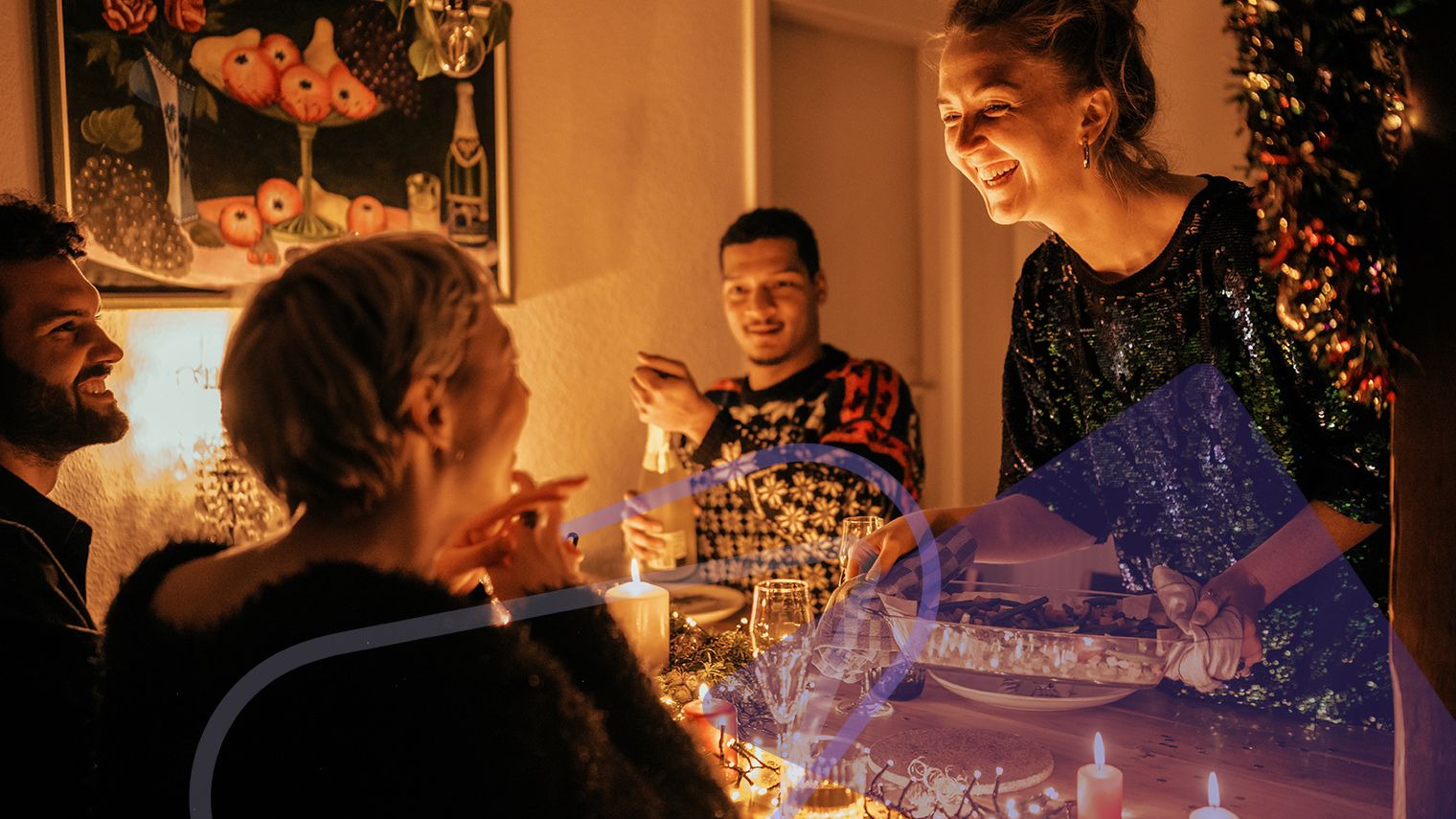How I Stay Resilient Under Holiday Stress
November 15, 2024

Photography by Alina Rudya/Bell Collective/Getty Images
Holiday foods, hectic errands, parties, and more can all threaten to trigger an ulcerative colitis flare. Here’s how I stay grounded.
Holidays are stressful for almost anyone, but for people with inflammatory bowel disease (IBD) or other chronic medical conditions, it may be even harder to stay on an even keel during festive family get-togethers and social outings.
I live with ulcerative colitis (UC). For me, the winter holidays can trigger my symptoms, such as abdominal pain and diarrhea, if I’m not careful about the foods I put into my body and how I take care of my mental health during this busy time.
While the holidays may bring about changes in routine and schedule, I’ve learned to remain resilient during the holiday season. The key is to adapt to these challenges while successfully sticking to the habits that work to keep my symptoms under control.


Finessing holiday meals and treats
Special meals, treats, and cocktails are often at the center of holiday gatherings. These represent a huge change to my daily routine of eating safe foods in the comfort of my own home.
The eggnog, gingerbread, and pumpkin pie look and smell delicious, but I know that they’ll make my symptoms worse. I’ve learned that I can still enjoy myself and avoid a flare by sticking to my non-trigger foods. I fill my plate with foods such as fish, chicken, turkey, rice, and always lots of cooked vegetables.
I’ve also found that if I have a non-triggering snack before a party, I’m less hungry, more satisfied, and less likely to indulge in foods that make me feel bad.
Holiday eating requires a balance between being flexible in each dining situation and maintaining control of my behaviors. I think of it as mindful eating.
When I’m invited to a home I’m not as familiar with, I offer to bring along an appetizer or side dish. This way, I know there will at least be one safe food option for me.
I’ve learned that holiday eating requires a balance between being flexible in each dining situation and maintaining control of my behaviors. I think of it as mindful eating. I participate in the party but remain aware of how my food choices may make me feel, which helps me stay committed to eating well.
This mental awareness is at the root of my ability to be physically resilient in the face of holiday fare galore. I remind myself over and over that it’ll be hard to bounce back from a setback. Feeling good makes it well worth it to pay attention to what I eat during the holidays.
My ability to handle myself in various holiday settings continues to grow the more I practice it. Support is also important. I share a lot with my friends and family about my condition so that they have a good understanding of what I can and can’t eat, and they are always willing to make adjustments to their plans or menus to help me feel more comfortable.
Harnessing the holiday frenzy
The holidays can be stressful in other ways, too. Family dynamics, cooking, and running around to purchase gifts and attend parties can cause anxiety. For someone like me with a health condition that can be triggered by stress, it’s important to cope with these factors in a healthy way.
My usual non-holiday routine consists of strategies that help my mind and gut stay calm, and I make sure I stick to or even increase these habits during the stressful holiday season. Yoga, meditation, walking, and long baths are very helpful de-stressers for me.
I also make sure I get plenty of sleep and don’t overschedule. Practicing these healthy habits eases the responsibilities and expectations that I experience during the holidays, and as a result, my body feels better.
My gratitude journal comes in handy during the winter holiday season as well. This is a calming tool I use nearly every day to focus on the good in my life. Writing in my journal during the holidays is especially helpful, as it helps me reflect on the true spirit of the holidays, combat negative thoughts, and prevent the gut issues that holiday stress can lead to.
I constantly remind myself that one of my best defenses against a flare is keeping my stress levels low. Resilience during the holiday season means not letting the hecticness get the best of me or come before my well-being. Things like simplifying gift-giving or letting others do the hosting help me fend off stress and keep my UC symptoms at bay.
The takeaway
Holidays don’t have to be a trigger time. Caring for your body and mind, even when you’re repeatedly faced with savory food, outings, and other holiday stressors, can help you stay resilient and find joy in the season.
Medically reviewed on November 15, 2024


Like the story? React, bookmark, or share below:
Have thoughts or suggestions about this article? Email us at article-feedback@bezzy.com.
About the author